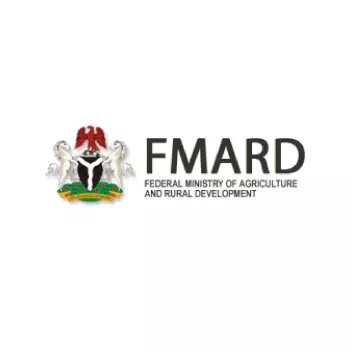Hot Stories
Recent Stories
Nigerians Blast Agric Ministry For Building N30m Mosque for Herders
Posted by Thandiubani on Fri 21st May, 2021 - tori.ngFollowing the discovery that the Federal Ministry of Agriculture and Rural Development built a mosque for herders, Nigerians have expressed anger.

FMARD
Nigerians have taken to social media to lambast the Federal Ministry of Agriculture and Rural Development over a leaked memo showing how the government agency constructed a mosque for a whopping N30 million using taxpayers’ money.
The revelation has sparked outrage online.
But the Ministry maintained it has nothing to hide over the approved N30million mosque project.
The memo sighted by The Nation dated December 10, 2020 with reference number FMA/PROC/AHS/SIP/2020/7742/1, stated the Ministerial Tenders Board approved the contract.
The document titled: ‘Award of Contract for the Construction of Friday Mosque’ was signed by the Deputy Director, Procurement, Musa Musa on behalf of the Minister.
It was addressed to the Managing Director, El-Shukhur Multi-Buz Nig. Ltd.
It reads in part: “I am directed to inform you that the ministerial tenders board at its 7th meeting held on December 7, 2020, approved the award of contract for the construction of Friday mosque to your company at the total sum of N30m only, inclusive of VAT, with a completion period of eight weeks with effect from the date of this letter.
“You are therefore required to indicate in writing within three days of receipt of this offer, your acceptance to the office of the director, procurement, FMARD, Abuja or otherwise, the offer will be considered lapsed.”
The Ministry, in its rejoinder, said it decided to build the worship centre for livestock farmers displaced by Boko Haram insurgents in Borno State.
It noted the approval did not breach any law as being portrayed by some media houses.
It further explained the ministry’s memo approving N30 million for the construction of a Friday mosque is an official document available for public scrutiny and review.
“To put the facts straight, the memo is authentic and appropriate in all ramifications.
“It is original and was issued by the Ministry for the construction of a worship centre for a community of livestock farmers who were sacked and displaced in Borno State by Boko Haram insurgents and are being resettled in Ngarannam/Mafa local government, Borno State.
“Apart from the mosque, other common facilities provided for the livestock farmers in the community include Solar Powered Boreholes with Overhead Tanks and Drinking Troughs for their cattle and small ruminants.
“(Others are) Water Harvesting Structures, Milk Collection Center, Resettlement Abode as well as other infrastructure to properly settle and rehabilitate the displaced livestock farmers.
“The construction of the mosque was a special request from the community through the Borno State Government to avoid moving too far from the settlement areas for prayers and also to ensure their safety and contact with the insurgents.
“The Memo is an official document and it is available for public scrutiny and review. It is, therefore, unfortunate for anyone to presume that the memo leaked.
“The Ministry is in no way perturbed about the matter because it received appropriate approval, carried out a due needs assessment and ensured due process in the execution of the project.”
Reacting, a former lawmaker, Senator Dino Melaye tweeted: “What! Despite all the challenges facing food security, building a mosque is the Federal Ministry of Agriculture’s priority!
“To pray for rain or what? How did we get here for Heaven sake? What has the government got to do with churches or mosques?”
Freelance investigative journalist David Hundeyin said: “I’m just interested in knowing how much taxpayers money the Ministry of Agriculture and Rural Development @FmardNg spends on funding construction of Ifa temples and Christian churches, since building mosques is apparently part of its remit. At least let the stupidity be fair.”
Daniel Regha queried: “It’s not the Agric Ministry’s work to build mosques, using N30m to do so for displaced herders is a misuse of public funds;
“Why not build ranches & help tackle the problem of open grazing? That money was meant to help improve the Agric sector in Nigeria by empowering farmers.”
Top Stories
Popular Stories
Stories from this Category
Recent Stories
















































